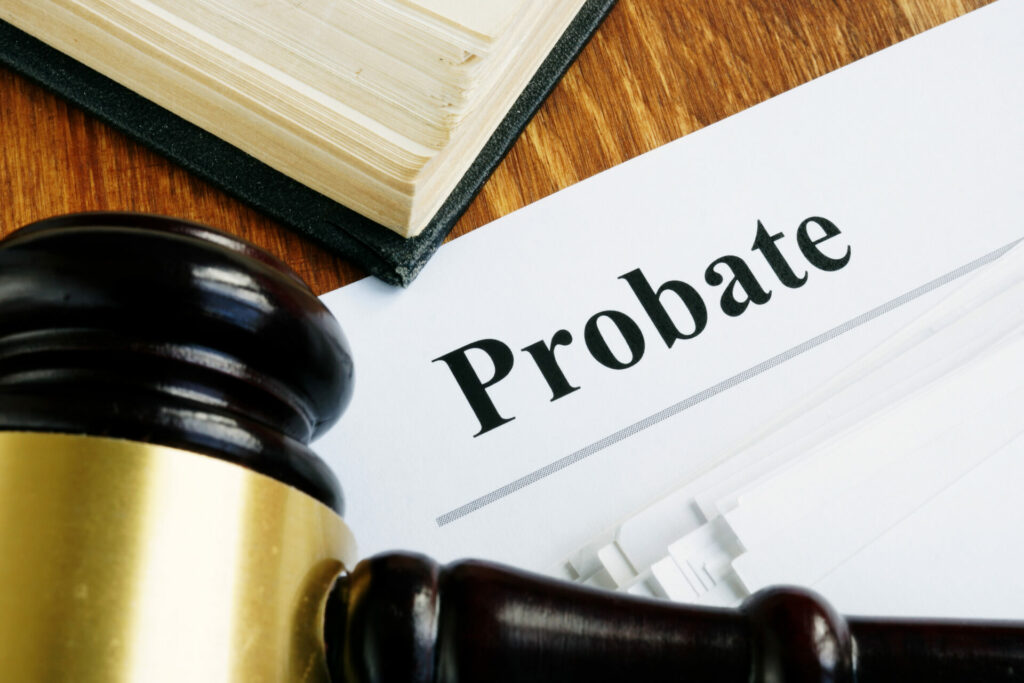What is a Will Contest?
Individuals create wills to ensure their estate’s assets are distributed according to their wishes following their death. In most situations, wills are probated and executed without issues. However, in some cases, a family member or beneficiary may have reason to believe the will is invalid. When this happens, an impacted party can file a lawsuit to contest the will or its provisions. It is critical to speak with a Texas probate litigation attorney prior to beginning your will contest to fully understand your legal rights and carefully prepare your case.
What Are Some Helpful Tips to Follow if You Are Considering Contesting a Will?
Contesting a will successfully generally requires a thorough knowledge of Texas probate and estate law. It is not a legal challenge to undertake on your own and or without an experienced attorney.

There are several steps you should take before filing a lawsuit to ensure that you are giving yourself the best possible chance of a successful will contest.
Choose Your Attorney Carefully
Will contests are complex, and you need a trusted lawyer to help you navigate the system. The legal counsel you select has a significant impact on the trajectory and outcome of your case. Choosing an experienced attorney at the start of the process is vital. Your lawyer can evaluate your case, determine whether you have a valid reason to bring a will contest, build a strategy for litigation, mediation or settlement. Selecting a skilled lawyer to represent your interests can save you time, money, stress – but most importantly, may substantially improve the likelihood of success through their careful handling of the case.
Figure Out if You Have Standing to Contest the Will
Only certain people have the right to contest a will. If you do not have the standing to bring a will contest, your case will be dismissed immediately. In general, the contestant must be an “interested person, ” such as the decedent’s beneficiaries and heirs who would be impacted in some way by an invalid will. Your probate litigation attorney can help you ascertain if you have the necessary standing for your contest.
Determine Your Method of Contest
Sometimes you may be disappointed or upset at the provisions of a will, but dissatisfaction with your inheritance is not a credible reason to contest the will. Litigation is only an option if you have strong reasons to believe the will is invalid. The court begins with the assumption that a will is valid, so the burden of proof rests on the contestant to demonstrate that it is not. You must decide what method of contest is appropriate for your case. In other words, what is your reason for doubting the validity or legality of the will?

Commonly cited methods of contest include:
- Lack of testamentary capacity: The individual was not of sound mind when the will was made and could not understand the implications of their actions.
- Undue influence: The will was not made voluntarily and was the result of coercion, manipulation, threats, or other acts by a third party.
- Improper execution: Wills are subject to strict rules. If the will does not meet these requirements, for example, if it was not witnessed, it is invalid.
- Mistakes or ambiguous language: Wills written by the testator without the assistance of a lawyer may be unclear or have obvious errors. If you disagree with the interpretation of the will’s contents, you may be able to contest the portion you believe is incorrect.
- Missing original document: Failing to produce an original will could support a contest based on facts and circumstances that the will was revoked.
Other credible reasons to contest a will may exist depending on your circumstances. It’s essential to talk over your concerns with a knowledgeable attorney to understand your legal rights.
Know if a “No-Contest Clause” Exists
Some wills contain a forfeiture clause, also known as a “no-contest clause,” to prevent disputes between family members over their inheritance. Under this clause, an individual may lose their right to inherit from the estate if they bring litigation to contest the will. However, the presence of a no-contest clause does not necessarily prevent you from taking legal action. In exceptional circumstances where the plaintiff can demonstrate that they are bringing the will contest with just cause and in good faith, the court may reject the clause and allow the case to proceed. Knowing whether this clause exists is crucial so you can discuss the risks of your claim with your lawyer to make an informed decision.
Remain Aware of Time Limits
In most Texas cases, you have two years to contest the will from the date it is probated. There may be rare exceptions to this rule, but it is best to err on the side of caution and begin the legal process as soon as you suspect there could be an issue. Crucial evidence and documents can be lost or destroyed over time, so prompt action is vital to your case. Waiting to bring a contest is never wise. In fact, likelihood of success increases substantially if the will has not been admitted to probate.
Have Reasonable Expectations for the Process
Protecting your rights to your inheritance is vitally important, especially if you believe someone else used sinister methods to influence or manipulate your deceased loved one. But if you are considering pursuing legal remedies, be aware that contesting a will can be a lengthy, complicated, and emotionally draining procedure and should not be undertaken lightly.

Although many will contests are settled through mediation, there is always the chance that your case could require a trial. Your lawyer ought to be upfront about the merits and drawbacks of your case and the likelihood of success so you have a thorough understanding of the best course of action for your situation.
How Can Our Law Firm Assist You?
If you are contemplating a will contest or have questions about the validity of a will, don’t hesitate to take advantage of a complimentary case assessment session with our helpful lawyers at The Hatchett Law Firm, PLLC. During your assessment, we can address your questions and concerns and examine your options for moving forward. Contact us today at 281-771-0560 for scheduling.




